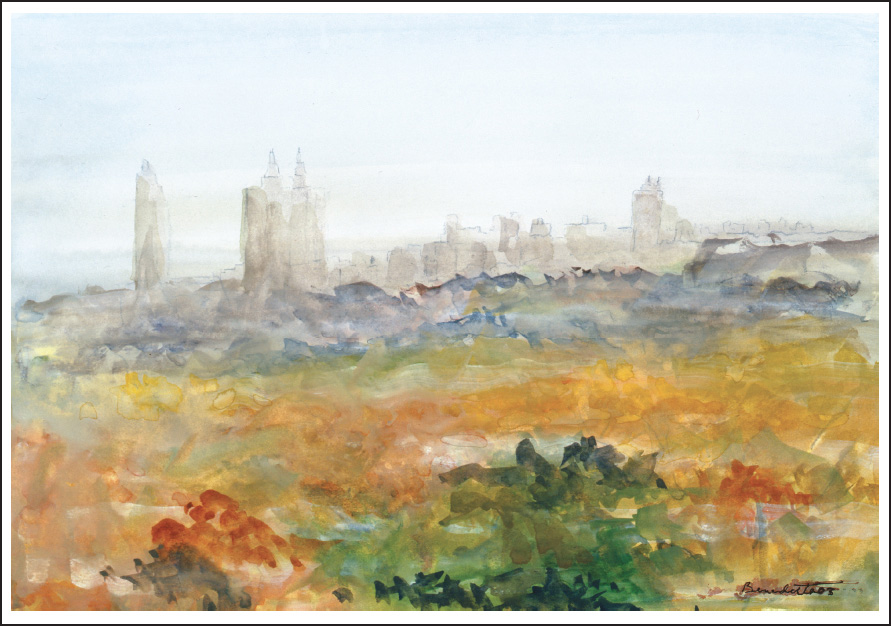I have probably sung scores of Cole Porter’s songs thousands of times, and each time it’s like opening some exquisitely made treasure. All the internal rhymes and “clever entendres,” like these special lines from “Let’s Do It (Let’s Fall in Love)”:
In shallow shoals English soles do it
Goldfish in the privacy of bowls do it
Let’s do it, let’s fall in love.
Cole wrote that for Paris, the show that was his first Broadway success, in 1928. Looking back on it, a lot of factors were coming into play then that made Cole’s music such a fitting accompaniment for the time. Recording technology and radio were beginning to make music an everyday companion in American homes. The talkies—motion pictures with sound!—were packing in millions of Americans who were eager to see and hear the musical talents they had heard about. And the microphone, which could not only project a voice but also isolate it, emphasized the value of wordplay and memorable lyrics to make a song popular.
Then add the Great Depression—that’s an important part, too. Americans wanted entertainment, and Cole’s songs reminded them of elegance and wit. His songs were a glass of bubbly in flat times.
We don’t think of Cole as a jazz figure. But jazz artists loved to perform Cole Porter’s songs. His lyrics demanded the best, most precise phrasing from a singer. And Cole’s gift for concealing the risqué in the turn of an elegant phrase (“Why ask if shad do it? / Waiter, bring me shad roe”) was a sly trick that jazz and blues performers had sought, too, and admired.
One of the favorite duets that I get to sing with the glorious Lady Gaga is Cole Porter’s “Anything Goes.” It’s the title song of his 1934 musical (the great Ethel Merman first sang that song, and not a word was lost).
I sang this with Gaga on our 2014 album, Cheek to Cheek. Tom Lanier on piano and a host of great jazz artists accompanied us.
Gaga told me that she first remembered hearing the song when she was thirteen and immediately heard the fun in Cole’s song. As she got older, she heard the powerful sexy vibe, too.
I’d recorded the song on my own a couple of times. But Gaga’s excitement over joining forces for our own version of this classic Cole was contagious. We loved doing Cole’s song in the studio and delight in singing it onstage today. We hand the lines back and forth because the way Cole composed the song and fit the lyrics inside of it makes it as irresistible as tossing a ball back and forth. The opposing rhymes and contrasting words bing back and forth in every line, then wind up interlocking like a Rubik’s Cube:
And good’s bad today,
And black’s white today
And day’s night today
Yet this man known for putting wit and cleverness into every line could also be sincerely simple and direct. So many of us have recorded Cole’s song “I’ve Got You under My Skin.” Virginia Bruce got to sing it first, in Cole’s 1936 MGM musical Born to Dance. A lot of historians rank Frank Sinatra’s 1946 recording as one of his signature songs. I think Dinah Washington and Diana Krall have recorded especially great takes on the song, too. It not only begins with a single, arresting image—I’ve got you under my skin—but stays with that image line after line, which is exactly what romantic love does, isn’t it?
Yet again Cole found internal rhymes and quotable wordplay (“So deep in my heart that you’re really a part of me”).
I never met Cole Porter. His legs were crushed in a horse-riding accident in the late 1930s, and he lived for years with crippling pain. He had thirty-four operations over the years to try to save his legs and end his pain. By the time I began to make it in show business in the 1950s, one of Cole’s legs had been amputated, and his wife had died. This man, known for living large (the story, which he encouraged, was that Cole had brought along his piano when he joined the French Foreign Legion after World War I) and giving glittering parties that included the most glamorous people of the times, was living more or less in isolation at the Waldorf. He was admired, beloved, but lonely. He died in southern California in 1964.
I don’t know of any Cole Porter today. I don’t mean that there aren’t plenty of people who are writing clever, intricate, affecting songs that will live for a long time. But Cole was a kind of gold standard. His songs were universally acclaimed and enjoyed by all types of people, from classical music fans to jazz enthusiasts. His songs were unlike anyone else’s, even as so many others tried to imitate him, consciously or unconsciously. Cole Porter’s songs set a standard for American popular music and elevated it to new heights. He made the music we sing take off. He taught me that being original inspires others.

Foggy Day in Central Park

Central Park